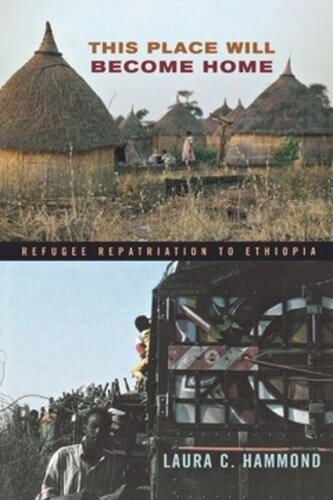

Most ebook files are in PDF format, so you can easily read them using various software such as Foxit Reader or directly on the Google Chrome browser.
Some ebook files are released by publishers in other formats such as .awz, .mobi, .epub, .fb2, etc. You may need to install specific software to read these formats on mobile/PC, such as Calibre.
Please read the tutorial at this link: https://ebookbell.com/faq
We offer FREE conversion to the popular formats you request; however, this may take some time. Therefore, right after payment, please email us, and we will try to provide the service as quickly as possible.
For some exceptional file formats or broken links (if any), please refrain from opening any disputes. Instead, email us first, and we will try to assist within a maximum of 6 hours.
EbookBell Team

4.3
88 reviewsHow do communities grapple with the challenges of reconstruction after conflicts? In one of the first in-depth ethnographic accounts of refugee repatriation anywhere in the world, Laura C. Hammond follows the story of Ada Bai, a returnee settlement with a population of some 7,500 people. In the days when refugees first arrived, Ada Bai was an empty field along Ethiopia's northwest border, but it is now a viable—arguably thriving—community. For the former refugees who fled from northern Ethiopia to eastern Sudan to escape war and famine in 1984 and returned to their country of birth in 1993, "coming home" really meant creating a new home out of an empty space. Settling in a new area, establishing social and kin ties, and inventing social practices, returnees gradually invested their environment with meaning and began to consider their settlement home. Hammond outlines the roles that gender and generational differences played in this process and how the residents came to define the symbolic and geographical boundaries of Ada Bai. Drawing on her fieldwork from 1993 to 1995 and regular shorter periods since, Hammond describes the process by which a place is made meaningful through everyday practice and social interaction. This Place Will Become Home provides insight into how people cope with extreme economic hardship, food insecurity, and limited access to international humanitarian or development assistance in their struggle to attain economic self-sufficiency.